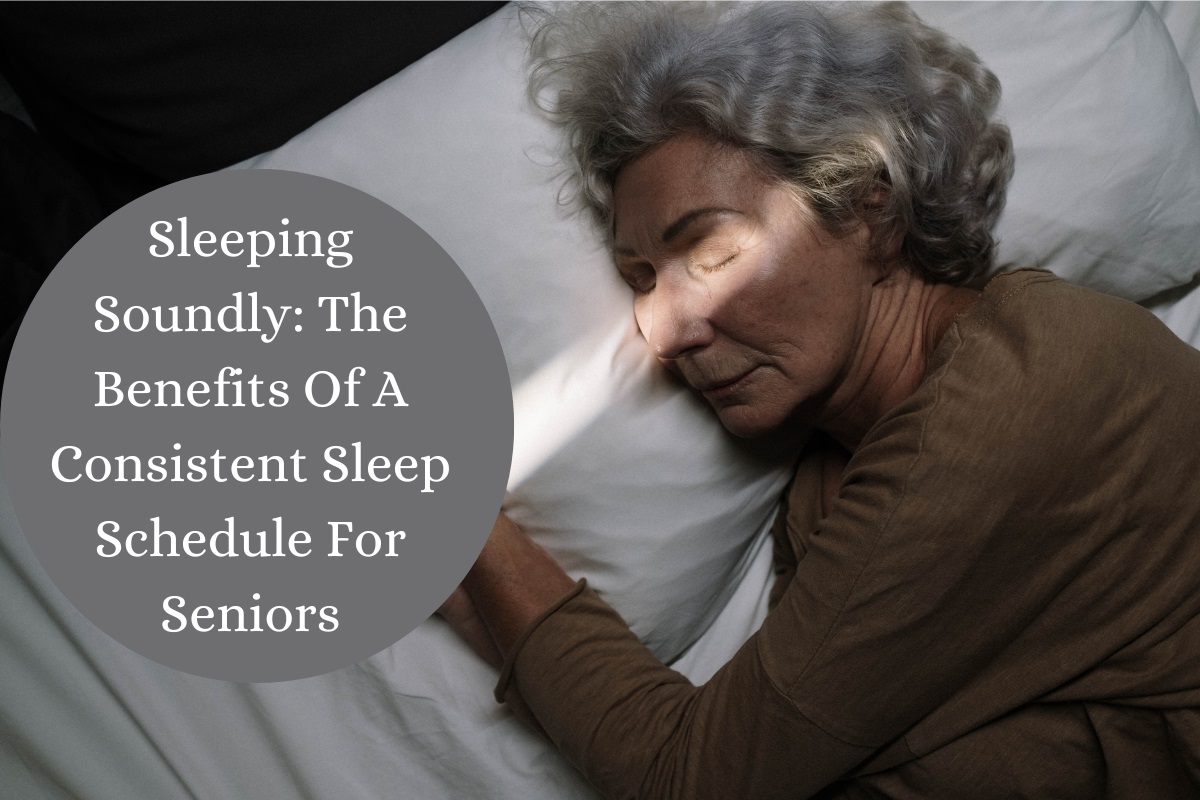Humans go through different stages of life, and each stage requires a different set of habits and lifestyles to improve their quality of life. Some of the vital bits of living happy and healthy are dependent on your eating and sleeping habits.
On average, infants and toddlers require a higher amount of sleep than adults. For example, babies need around seventeen hours to maintain their health, while adults and seniors require seven to eight hours. However, the majority of our senior citizens do not receive their required amount of recharge time. It is mainly due to their age, but it could also be caused due to several issues ranging from stress, health problems, or an inconsistent sleep schedule. To know the specific cause, it is important to receive a doctor’s advice or ask your senior home care facility for clarification.
Importance of a consistent sleep schedule
Sleep is an essential part of your everyday life and is essential at every age. It restores energy levels and heals your body’s physical and cognitive wounds. However, a lack of sleep can do the opposite. It causes several health issues, such as poor memory, shortened attention span, reduced concentration, etc.
There are many benefits of maintaining proper sleep schedules, both for children and adults. Encouraging our loved ones and ourselves to gain a regulated sleep schedule comes with significant benefits. Some of them include a/an:
- Reduction of anxiety and stress
- Enhanced memory
- Increased levels of alertness during waking hours
- Higher levels of human growth hormones (HGH). This leads to better metabolism and improves weight.
- Better cardiovascular health
- Higher attention span
- Reduction to symptoms of depression
- Regulated appetite
- Reduction of risks of falling
- Better immune system
- Happier, more engaged lifestyle
How to promote a healthy sleep pattern for the elderly?
Making changes to your diet and lifestyle will help enhance sleep quality. Some habits that can improve your sleep are:
1. Exercise
Being physically active during the day can help you fall asleep better at night. One reason is that exercising helps to elevate your core body temperature. After thirty to ninety minutes, your body temperature drops, making falling asleep easier.
There are several light exercises that seniors can easily do. A simple ten to thirty minutes walk, dancing, yoga or household chores are perfect for beginners and seniors.
2. Be consistent
Going to bed at the same time every night and getting up on schedule every day, including on the weekends, helps train your body to get used to having a scheduled bedtime.
3. Create an ideal sleep environment
Ensure your room is dark, quiet, and at an ideal temperature.
Biologically, our bodies have an internal clock or a circadian rhythm. This refers to any living being’s process of responding to the environment. By giving ourselves and our loved ones an ideal surrounding and a consistent sleep schedule, we are improving our chances of relaxing and sleeping soundly.
4. See the light in the a.m.
Having at least thirty minutes of exposure to natural sunlight significantly promotes a more positive sleep. This is because sunlight affects the production of our body’s natural sleep hormone(melatonin).
5. Remove electronics before bed
The blue light emitted from them reduces the production of melatonin. This makes falling asleep and waking up the next day even more challenging.
6. Balanced nutritional intake
Encourage a balanced diet (including proteins rich in tryptophan, fiber, low fats, dairy, and nuts). Avoid caffeine, alcohol, and heavy food, especially around bedtime.
7. Soothing
Try pre-bed soothing techniques such as bathing, relaxing music, reading, or deep breathing exercises.
Adding to the above list, there are other reasons as to why older people may have trouble sleeping. Some conditions, such as Alzheimer’s disease, diabetes, heartburn, asthma, and osteoporosis, can all have negative impacts on a senior’s sleep quality. Some conditions may cause people to use the toilet more frequently at night. Remember, never shy away from consulting doctors.
Conclusion
Due to the physical and psychological changes that come with aging, managing an older person’s sleeping routine becomes a bit challenging, especially since it takes time, consistency, and a certain level of information. Luckily, we don’t have to do it all alone. There are several doctors and care facilities that can lend us a helping hand.
By ensuring a regular day and night time routine, an active lifestyle, a well nutritional intake, proper soothing techniques, and trust in doctors’ advice and your intuition, you and your loved ones better your sleep patterns and quality of life.

